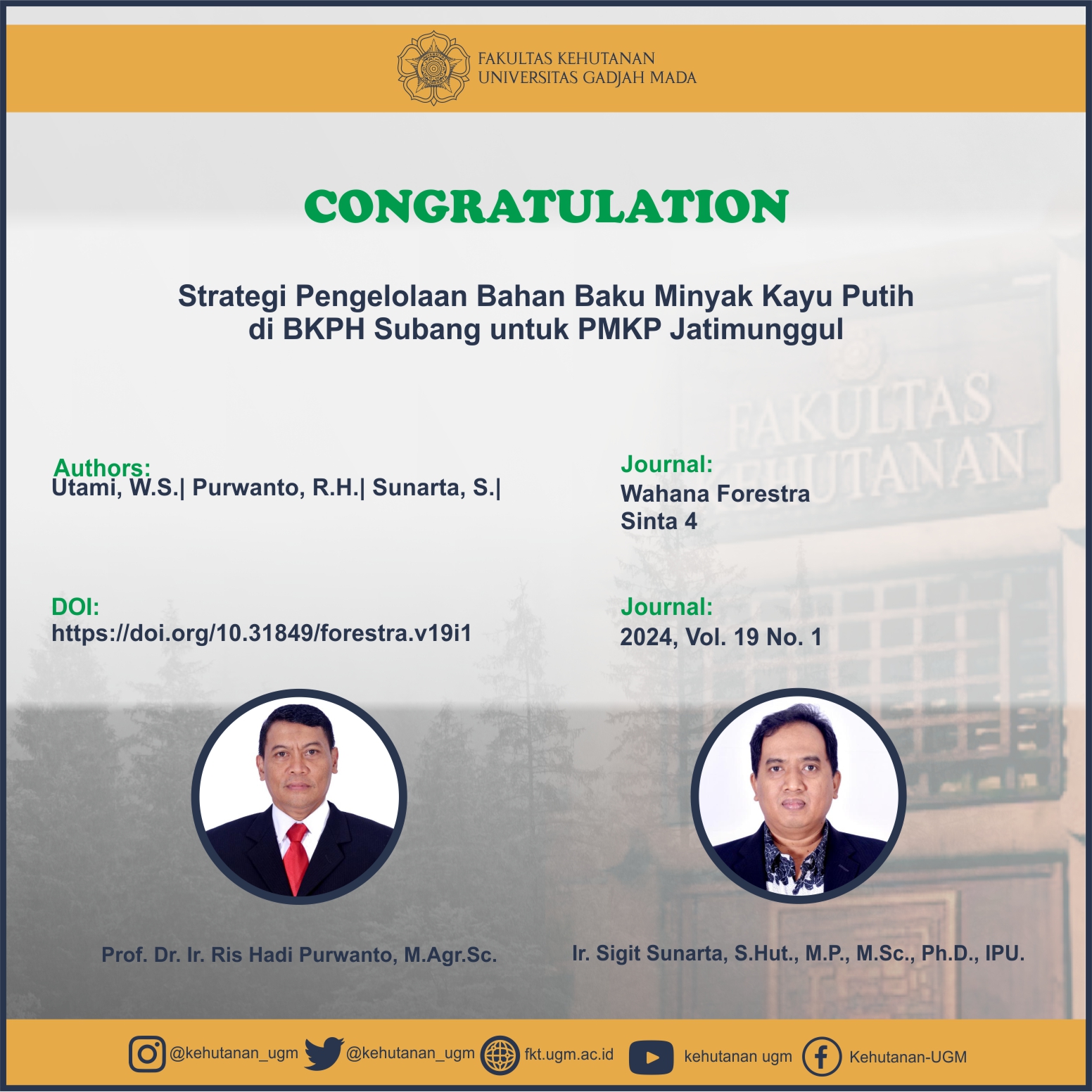
Abstract
Storage of Melaleuca cajuputi leaves and twigs affectsthe quality and yield of eucalyptus oil produced. The availability of raw materials from eucalyptus plantation forests is abundant, but the production capacity of eucalyptus biomass cooking kettles at PMKP Jatimunggul is insufficient, causing a decrease in yield because raw materials are stored for days and the transportation time from the BKPH supplier to PMKP Jatimunggul takes one day. Meanwhile, raw materials are always sent every day from 4 KPH suppliers. Harvesting eucalyptus leaves and twigs that do not comply with the SOP can also reduce the yield of eucalyptus oil. The research aims to formulate a raw material management strategy to improve the yield quality and cineol content of eucalyptus oil. Data obtained from interviews with questionnaires wereanalyzed using SWOT. The research results show that the raw material management strategy has a total strength internal factor score of 3.892; weakness of 3.785; chance of 3.906; and threats of 3.489. The strategic position for managing raw materials and eucalyptus oil is located in quadrant I with coordinate values (0.107; 0.417). Aggressive Strategy (Strengths –Opportunities) to seek opportunities from BKPH Subang and PMKP Jatimunggul based on their strengths. Then the company will increase production of raw materials for eucalyptus leaves and twigs.
SDGs:
1. SDGs 4:Quality Education
2. SDGs 8:Decent Work and Economic Growth
3. SDGs 12:Responsible Consumption and Production
4. SDGs 13:Climate Action
5. SDGs 15:Life on Land
Link Dokumen:
Download
